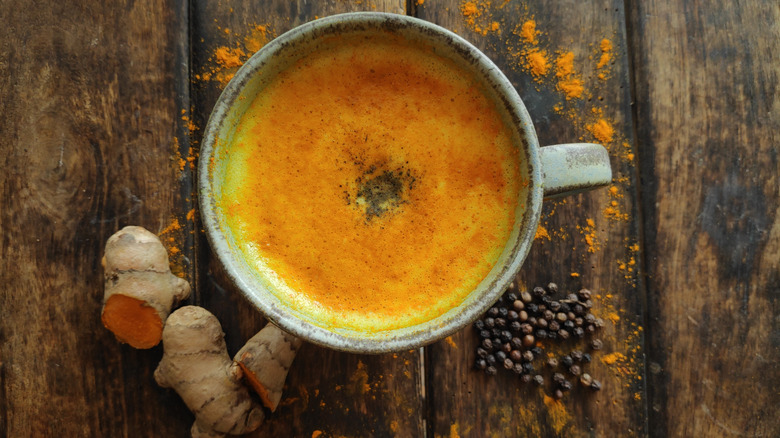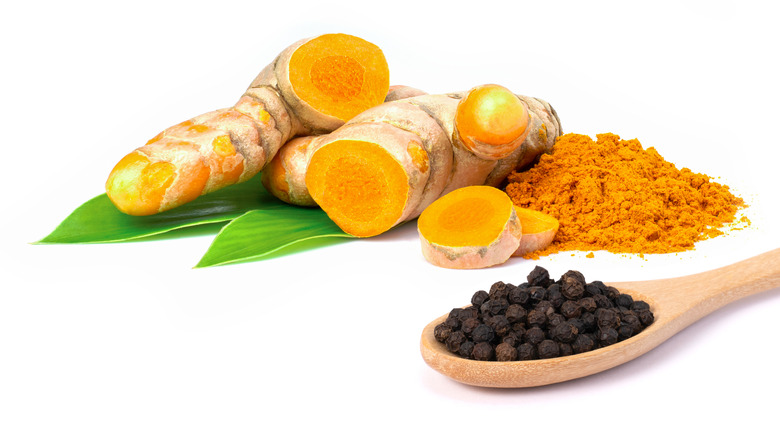Black Pepper Is The Perfect Partner For Turmeric. Here's Why
Turmeric seems to be all the rage right now, and every influencer posting a recipe insists on adding some fresh cracked black pepper to "activate" the colorful ingredient, making your morning smoothie sound more like a science experiment. There is more to turmeric than the bold, golden color it lends to everything from your hands to a warm bowl of curry, and Science Direct notes that the additional health benefits can be greatly increased by adding pepper.
Turmeric puts the zing in Zingiberaceae, the plant family it belongs to, along with ginger. It is a rhizome (root) of the Curcuma longa plant that's native to India that has a long history of culinary and medicinal uses. When exposed, the root has a golden orange hue that maintains its brightness when used fresh or dried and ground into a spice. It has a pungent, slightly bitter flavor, and its bold color and taste are striking additions to culinary dishes, most notably curry.
According to Britannica, black pepper is another treasured spice native to India that has a history spiced with culinary uses and health benefits. This aromatic spice made from the dried fruits of the Piper nigrum plant is one of the earliest food seasonings ever documented. As a sought-after trade commodity, it was once so highly valued that it was referred to as "black gold" and used as currency. Its intense flavor enhances culinary dishes and can aid in digestion.
Piperine and curcumin make a powerful combination
By themselves, black pepper and turmeric pack earthy flavors, heady aromas, and strong colors that enhance many dishes with their notably pungent taste and eye-catching appearance. According to Healthline, there is more to these spices than meets the eye and palate, and when combined, they create a medicinal powerhouse that is just as bold as their flavors.
Curcumin is a strong antioxidant found in turmeric that has anti-inflammatory, anti-fungal, and antibacterial properties. Black pepper contains a bioactive compound called piperine that has anti-inflammatory effects similar to capsaicin and is also effective in relieving ailments like headaches, nausea, and digestive issues. On its own, curcumin is poorly absorbed by the body, making it challenging to reap its disease-fighting benefits.
Combining the piperine in black pepper with the curcumin in turmeric increases the bioavailability of curcumin by up to 2000%, activating it in two ways. Piperine might allow curcumin to be more easily absorbed into the bloodstream through the small intestine, and it could also slow down how quickly the liver clears the compound from the body, per Healthline. This allows the body to utilize the healthful antioxidant to possibly prevent cancer, fight off the flu, quell the pain and inflammation of arthritis, and enhance digestion. So, don't forget to grab the pepper mill next time you cook with turmeric.

